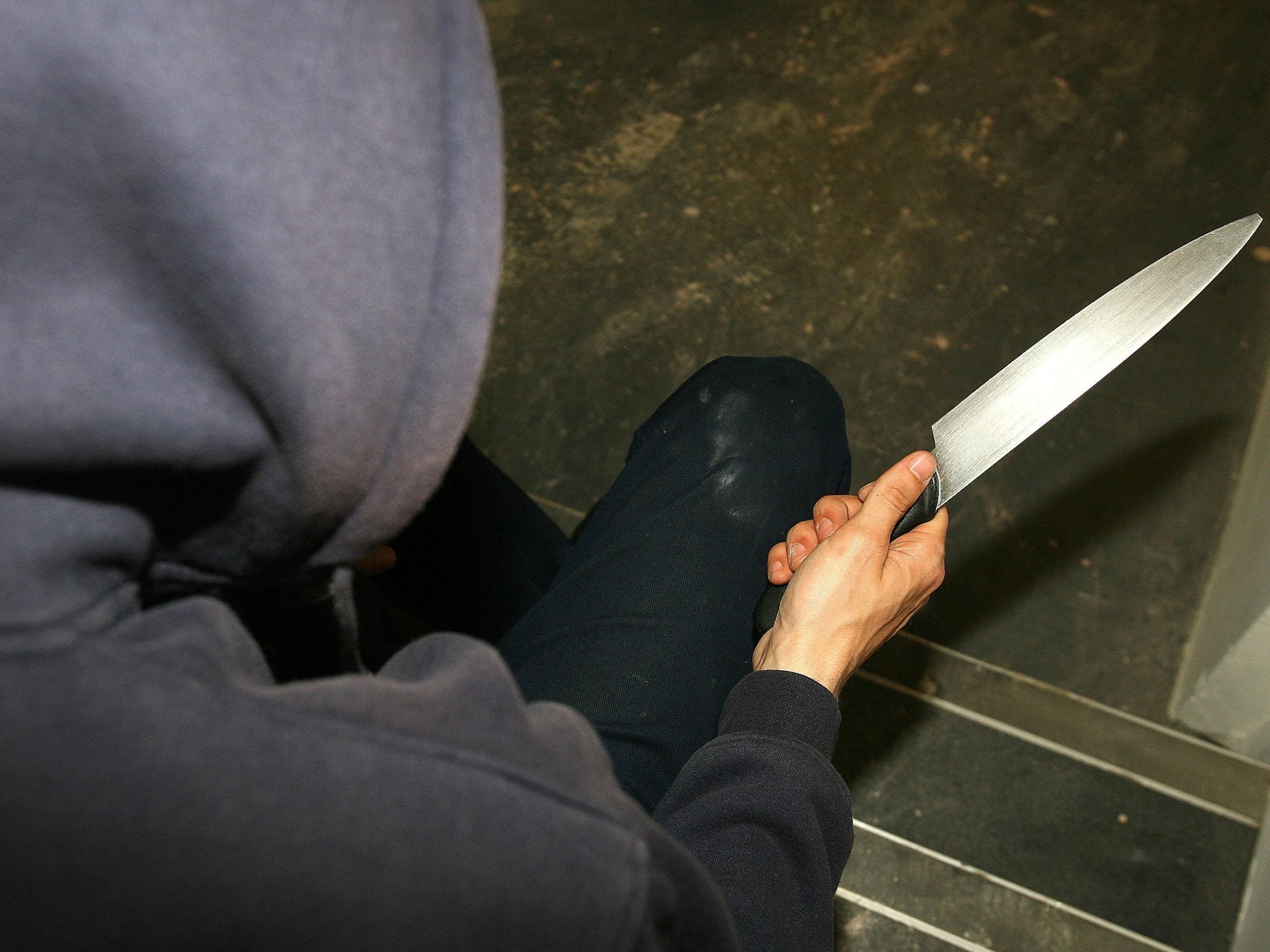Surgeons set to visit schools as NHS appoints first knife crime and violence reduction tsar
Health service chief says it must take leading role on tackling violence and other social issues

Your support helps us to tell the story
From reproductive rights to climate change to Big Tech, The Independent is on the ground when the story is developing. Whether it's investigating the financials of Elon Musk's pro-Trump PAC or producing our latest documentary, 'The A Word', which shines a light on the American women fighting for reproductive rights, we know how important it is to parse out the facts from the messaging.
At such a critical moment in US history, we need reporters on the ground. Your donation allows us to keep sending journalists to speak to both sides of the story.
The Independent is trusted by Americans across the entire political spectrum. And unlike many other quality news outlets, we choose not to lock Americans out of our reporting and analysis with paywalls. We believe quality journalism should be available to everyone, paid for by those who can afford it.
Your support makes all the difference.The NHS could send doctors into classrooms around the country to tackle a wave of knife crime that saw a thousand teens admitted to hospital with stab wounds last year.
Announcing the appointment of the first violence reduction tsar, NHS England chief executive Simon Stevens said the health service will be taking a leading role in “breaking the cycle of violence”.
Dr Martin Griffiths, a consultant trauma surgeon at Barts Health NHS Trust in London, has spent a decade visiting schools in the capital and working with victims of gang violence.
His work is part of a scheme, run with the charity St Giles Trust, linking caseworkers with young victims of knife crime while they are on wards.
The programme has helped reduce the number of young people returning to hospital from 45 per cent to less than 1 per cent.
“Every day, I see the wasted opportunities of young people stuck on hospital wards with life-changing injuries,” Dr Griffiths said.
“We do everything we can for these patients but don’t just want to patch them up and send them back out to be injured again.”
He said the NHS can do more to tackle these issues by working with other groups.
As clinical director for violence reduction in London, he will extend his work to other hospitals in the capital.
Mr Stevens said this approach “is something we will be expanding across the country in the coming year”, with other knife crime tsars likely to be appointed in other regions if they are successful in the capital.
The plan is part of a “public health approach” to knife crime championed by home secretary Sajiv Javid earlier this year.
Mr Stevens said: “Martin’s commitment to patients doesn’t end when they leave hospital, and his inspiring work at The Royal London [hospital], and in classrooms in the capital, has helped reduce the number of patients who recover only to return again with another gun or knife injury.”
However, he said the NHS could not act on this issue alone, adding in some areas it is “easier to buy a knife than buy beer” and calling for retailers to “step up”.
As the country’s largest employer, the NHS will increasingly take a leadership role on other challenges facing society, Mr Stevens said.
This includes tackling the issue of air pollution by cutting out unnecessary hospital appointments and GP appointments that would save 600 million miles of car journeys every year.
In the wake of a global report showing Europe has the lowest levels of trust in vaccines in the world, Mr Stevens said it also needs to win the argument on safety.
“We’ve got situations where we’ve seen outbreaks in North London and frankly middle-class parents are putting other people’s children at risk by not having their own children vaccinated,” he added.
In his speech at the NHS Confederation conference in Manchester, Mr Stevens also called for ministers to recognise the extra funding for the NHS would not be sufficient for the challenges it faces.
Despite the health service budget rising by £20.5bn by 2023/24, he said years of cuts to funds for new hospitals and equipment were unsustainable.
He also gave the first indication that the 10,000 beds lost in the NHS in the past 30 years may be contributing to pressures in hospitals.
“We are now at a point where our hospital bed stock is overly pressurised, and in many parts of the country we are going to need – backed up by extra nurses – increased capacity, not decreased,” he said.
“That represents quite a significant gearshift in our ongoing assumptions.”
Join our commenting forum
Join thought-provoking conversations, follow other Independent readers and see their replies
Comments